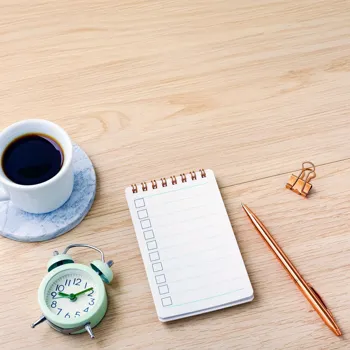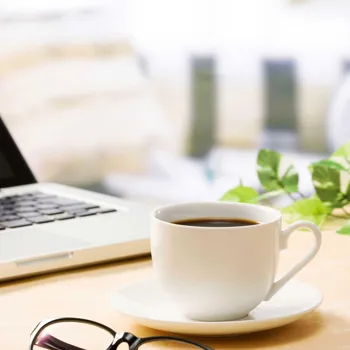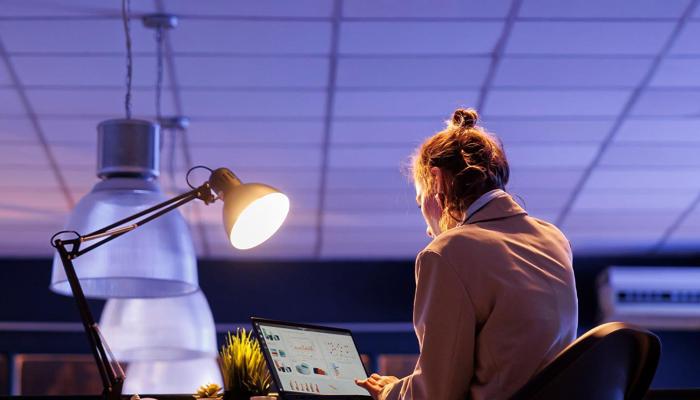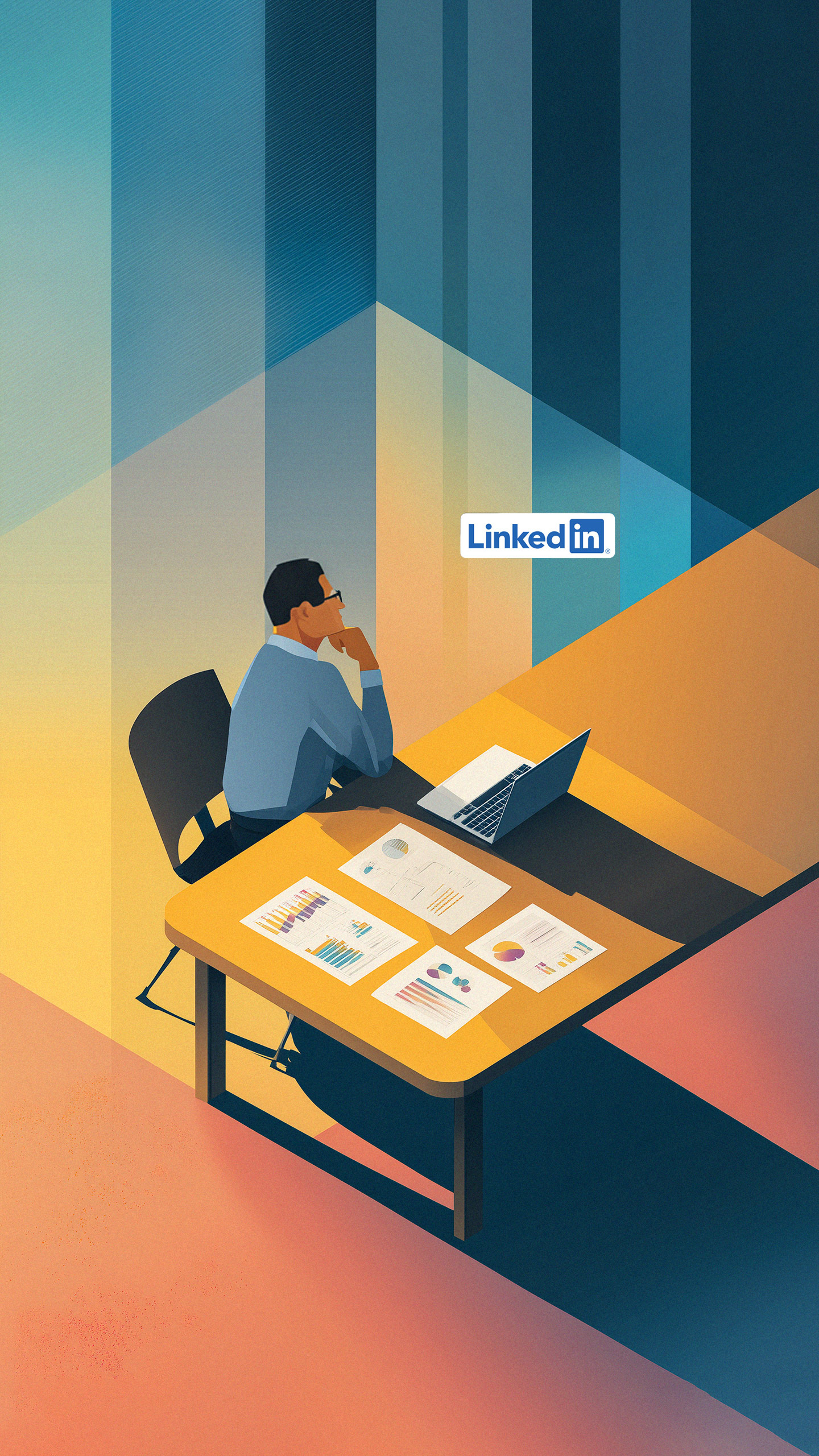Discover 7 Simple Changes to Supercharge Your Productivity and Make Every Workday Count! Dive in to unlock efficiency secrets
In today's fast-paced world, everyone is looking for ways to get more done in less
time. Whether you are a student, a working professional, or a homemaker, boosting your productivity can make a huge difference in your overall well-being.

This article offers seven simple, yet effective, changes you can implement to make your workday more efficient and feel more accomplished. No need for drastic overhauls, just small tweaks that add up to big results.
Plan Your Day the Evening Before:
Imagine starting your day already knowing what needs to be done. Instead of wasting precious morning minutes figuring out your priorities, you can jump right into action. Take fifteen minutes before you wind down for the night to jot down your tasks for the next day.
This doesn't have to be elaborate; a simple list in your notebook or a digital note will do. The key is to be specific.
Instead of writing "Work on project," break it down into smaller, more manageable tasks like "Draft introduction for project report" or "Research competitor strategies for project X.
" This clarity will give you a roadmap to follow, reducing the feeling of being overwhelmed and increasing your focus from the get-go. Besides tasks, also allocate time slots to each activity.
This simple act of planning reduces that morning anxiety of "What do I need to do today?
", which can eat into your motivation. Planning ahead allows your subconscious mind to process information overnight, often leading to creative solutions or new insights when you begin working.
By visualizing your day in advance, you are mentally preparing yourself to tackle tasks, even the less exciting ones, with more enthusiasm.
It helps you to allocate time according to the difficulty of the project. You can plan your day according to the need of each task.
Planning also increases the efficiency and reduces the error rate.
Embrace the Power of the Pomodoro Technique:
The Pomodoro Technique is a time management method that involves working in focused bursts of 25 minutes, separated by short breaks. The idea is that intense focus followed by brief rest helps maintain concentration and prevent burnout.

To implement this, set a timer for 25 minutes and dedicate yourself entirely to one task, eliminating all distractions. When the timer rings, take a 5-minute break to stretch, grab a drink, or simply look away from your screen. After every four "Pomodoros," take a longer break of 20-30 minutes.
This technique works by breaking down large tasks into more manageable chunks, making them less intimidating. The short bursts of focus are easier to maintain compared to trying to concentrate for hours on end.
The regular breaks prevent mental fatigue and allow your brain to recharge, leading to improved concentration and better quality work. Experiment to find the intervals that work best for you; some people find that longer focus periods suit them better, while others prefer shorter intervals.
The key is to find a rhythm that allows you to maintain consistent focus without feeling drained.
This not only motivates you to keep your target intact but also helps to meet the timeline of your activities. The short breaks helps you make your mood fresh and come with a new idea and strategy.
This also helps to improve your physical being.
Eliminate Distractions Ruthlessly:
Distractions are the biggest enemies of productivity. Whether it's notifications popping up on your phone, colleagues stopping by for a chat, or the allure of social media, these interruptions can derail your focus and significantly slow you down.

Identify your biggest distractions and take concrete steps to minimize them. Turn off notifications on your phone and computer, use website blockers to restrict access to distracting websites during work hours, and let your colleagues know when you need uninterrupted time.
Find a quiet workspace where you can concentrate without interruption.
If you work in an open office, consider using noise-canceling headphones to block out background noise. Inform your family or roommates about your work schedule and ask them to respect your need for uninterrupted time.
Create a designated workspace that is free from clutter and distractions. The more barriers you put between yourself and distractions, the easier it will be to stay focused on your work.
Remember, every time you get distracted, it takes time to regain your focus, so minimizing interruptions is crucial for maximizing productivity.
In the era of work-from-home, distractions are very common, and it becomes extremely difficult to stay away from them.
Identifying where the problem lies is the first step to resolving it. For kids and family matters, you can assign small tasks to each member to make them feel responsible and reduce the pressure on yourself. You can also tell them about your office timing so that no interruptions occur.
Prioritize Tasks Effectively:
Not all tasks are created equal. Some tasks are more important than others, and focusing on the right ones can make a significant difference in your overall productivity. Use a prioritization method like the Eisenhower Matrix (also known as the Urgent-Important Matrix) to categorize your tasks.
The Eisenhower Matrix divides tasks into four categories: Urgent and Important (do these tasks immediately), Important but Not Urgent (schedule these tasks for later), Urgent but Not Important (delegate these tasks if possible), and Neither Urgent nor Important (eliminate these tasks).
By prioritizing your tasks, you ensure that you are focusing your time and energy on the activities that will have the biggest impact on your goals. This prevents you from getting bogged down in less important tasks and allows you to make progress on your most critical objectives.
Regularly review your task list and adjust your priorities as needed. Be realistic about what you can accomplish in a day and don't be afraid to say no to tasks that are not aligned with your priorities.
Learning to prioritize effectively is a skill that will serve you well in all areas of your life.
It helps you to focus on value-added tasks and reduce inefficiency by a huge margin. As an individual, you will feel motivated after completing the vital task.
Batch Similar Tasks Together:
Multitasking is often touted as a way to get more done, but research shows that it actually reduces productivity. When you switch between tasks, your brain has to expend energy to refocus, leading to decreased concentration and increased errors.

Instead of multitasking, try batching similar tasks together. For example, if you need to respond to emails, set aside a specific time each day to handle all of them at once, rather than checking your inbox constantly.
Similarly, if you need to make phone calls, schedule a block of time for all your calls. The idea is that grouping similar tasks together allows you to get into a flow state, where you can work more efficiently and effectively.
Batching can also reduce mental fatigue by minimizing the need to constantly switch gears. Experiment with different task groupings to find what works best for you.
You might find that you are more productive when you batch all your writing tasks together, or when you dedicate a specific time each day to administrative tasks.
This also helps you reduce the time consumed in understanding and getting started. This also improves the quality of your work.
Take Regular Breaks and Engage in Mindful Movement:
Taking breaks might seem counterintuitive when you are trying to be more productive, but regular breaks are essential for maintaining focus and preventing burnout. Get up from your desk at least once every hour to stretch, walk around, or do some simple exercises.

Even a few minutes of movement can help to refresh your mind and body. Incorporate mindful movement into your workday. This could be as simple as taking a few deep breaths, doing some neck rolls, or going for a short walk outside.
Mindful movement helps to reduce stress and improve focus.
It also helps to prevent physical discomfort from sitting in the same position for long periods of time. Make sure to step away from your screen during your breaks and do something that relaxes you. Avoid checking emails or social media, as this can actually increase stress.
Use your breaks to recharge and rejuvenate so you can return to your work feeling refreshed and focused.
**
Taking a break doesn't mean you are wasting time. It is part of the work. It helps you to improve your mental state and improves your efficiency.
Reflect and Adjust Regularly:
What works for one person may not work for another. It is important to regularly reflect on your productivity strategies and adjust them as needed. At the end of each week, take some time to review your progress and identify areas where you can improve.

Ask yourself questions like: What tasks did I complete successfully? What challenges did I encounter? What strategies were most effective? What could I have done differently?
Use your reflections to refine your productivity strategies and make adjustments to your work habits.
Be open to trying new techniques and experimenting to find what works best for you. Remember that productivity is not a one-size-fits-all solution. It is a process of continuous learning and adaptation.
By regularly reflecting on your experiences and making adjustments as needed, you can optimize your productivity and achieve your goals more effectively.
This self-analysis helps you to improve your weak areas, identify the areas where you are doing good and gives the room to improve in a better way. The world is dynamic and constantly changing and if you don't adopt the new technology and strategies, you will become obsolete.
AI Generated Content. Glance/InMobi shall have no liability for the content




















